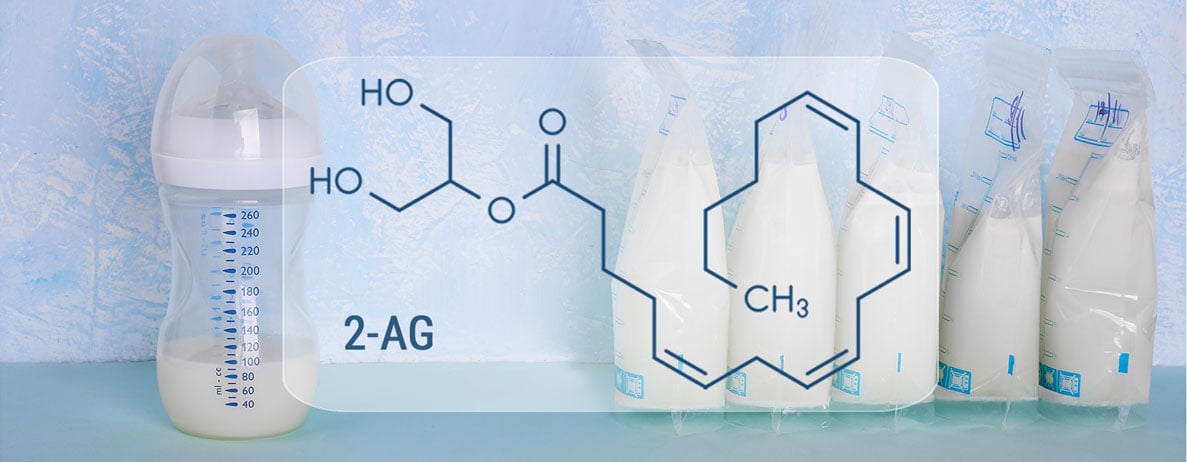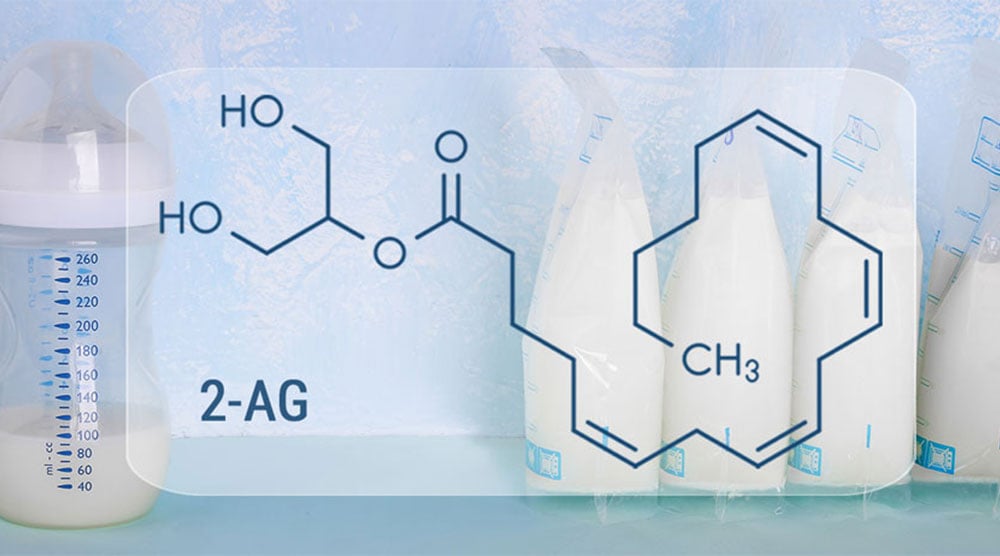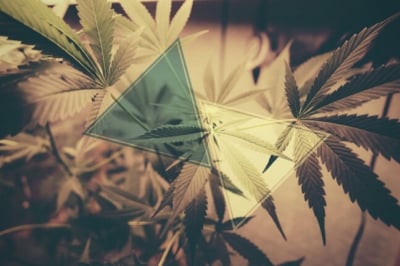.

Cannabis and Breastfeeding: What You Need to Know
Does weed affect breast milk? Will it be passed on to the baby? These are increasingly common questions as more people turn to cannabis for recreational or wellness purposes. While concrete evidence is thin on all counts, we do our best to explain what we do know, and what is currently advised by health professionals.
Contents:
The more accepted cannabis becomes, the more questions we seem to have about how it can fit in with our day-to-day life. Which raises the question, can you use cannabis when breastfeeding? As there’s not a huge amount of research into the relationship between cannabis consumption and breastfeeding, much less pregnancy, giving definitive answers is not currently possible. In examining the research available to us, however, we hope to provide a little more information on the subject.
Can You Smoke Weed While Breastfeeding?
The short answer is no. Data on the effects of weed in breast milk on babies is scarce; however, experts agree that cannabis use while pregnant or breastfeeding is not advisable—just as with alcohol or nicotine.
The American Academy of Pediatrics’ official stance on the use of weed by breastfeeding mothers states that the risks are "unknown"[1]. Cannabis can pass to the baby through breast milk, so there will likely be some detrimental effects. It is therefore universally recommended that mothers avoid cannabis products while breastfeeding.
The risk is heightened because the most dominant cannabinoid in cannabis—THC—is fat-soluble. This means that milk of any kind, including breast milk, is an excellent vehicle for THC to bind to. The Food and Drug Administration (FDA) has reported that THC can remain present in breast milk for up to 6 days—considerably longer than alcohol.
Edibles and Breastfeeding
Chemicals from cannabis in any form (including edibles, oils, or other concentrates) can be passed through breast milk from the mother to her baby, thereby affecting a variety of neurodevelopmental processes in the infant.
When you smoke or vape cannabis, the THC is delivered to your lungs. From there, it passes straight into your bloodstream, crosses the blood–brain barrier, and enters your brain. When cannabis is eaten, it is broken down in the liver and converted into a chemical called 11-hydroxy-THC, which is thought to be up to four times stronger than THC.
This would explain why edibles are anecdotally known for having much stronger, longer-lasting effects. Although it is advisable to refrain from smoking cannabis while breastfeeding, it's even more imperative that you do not indulge in edibles, as any dose of cannabinoids that may pass to the infant could be significantly higher.
Endocannabinoids in Breast Milk
There are two main cannabinoid receptors in our bodies. The CB1 receptor is found predominantly in the central nervous system and brain, whereas the CB2 receptor is found chiefly within the immune system. Each of these receptor types interacts with endogenous cannabinoids (or “endocannabinoids”), which are cannabinoids produced by the body. It just so happens that constituents from the cannabis plant, like THC and CBD, also bind to or interface with these receptors.
Interestingly, several[2] major scientific studies have discovered that human breast milk contains endocannabinoids—specifically the endocannabinoids 2-AG and AEA. These molecules are produced by the body to act as chemical messengers, and are crucial to many aspects of our growth and development. Cell membranes in the body are innately equipped with cannabinoid receptors, to which endocannabinoids bind and trigger a whole host of responses, from immune function to sleep. Specifically, activation of the CB1 receptor by endocannabinoids has even been shown to stimulate the suckling process[3] in mice.


How Could Cannabis Affect Breastfeeding?
Given that cannabinoids like THC and CBD are capable of interacting with the same receptors as endocannabinoids, this can potentially affect the endocannabinoid constituents in breast milk. Some animal-based studies suggest[4] that cannabis can even slow down breast milk production.
Neonatal and Childhood Outcomes
Other studies have shown that between 1 and 2.5% of the THC in a joint ends up in breast milk and is passed to the baby[5]. THC binds to protein receptors in the brain, which are integral to brain development. Therefore, research suggests that neonatal exposure to THC may alter brain development in nuanced ways.
Studies[6] have proven that babies exposed to cannabis via breast milk were quickly tired and had insufficient suckling skills compared to babies who had not. Tests also found that babies who ingested THC via breast milk had poorer motor skills at age one.
Breastfeeding also exposes babies to a risk of ingesting cannabis contaminants, such as heavy metals, bacteria, and pesticides.
Opposing Research
There does, however, appear to be some contradictory evidence in existence. A study presented to the American Academy of Pediatrics in 2021 observed 763 prematurely born infants between 2014 and 2020, of whom 17% had mothers with THC in their system when giving birth.
The results indicated that breastfed, preterm babies born to mothers who tested positive for THC were as healthy at the time of discharge as those who were not breastfed. However, more verified research is required before claiming that THC in breast milk poses no threat to an infant.
CBD and Breastfeeding
Women face multiple physical and mental challenges during pregnancy and postpartum. One in five suffers from postpartum depression, and there are various other issues, such as lack of sleep, anxiety, and chronic pain, to consider.
Therefore, it is no surprise that new mothers gravitate to natural supplements or dietary choices to help ease their physical and mental stress. So how does the non-psychotropic cannabinoid CBD, which is used for all manner of reasons, affect breast milk? And most importantly, can you take CBD while breastfeeding? Though CBD has a good safety profile among adult users, it may not be safe to use while pregnant or breastfeeding.
While the research currently available focuses on THC, experts are still concerned about the effect any cannabinoid could have on an infant's brain development. With this in mind, the general advice to breastfeeding mothers remains the same as with THC: don't do it.
That said, parents and healthcare professionals need to weigh up the risks on a case-by-case basis.
Can You Smoke Weed if You Aren’t Breastfeeding?
You now know that smoking weed while breastfeeding probably isn’t a good idea. But what about smoking weed after that period is over? Everyone is entitled to do as they please, but if you do choose to smoke weed, do not do so in the direct vicinity of your young child.
A small study[7] was carried out involving 43 children in Colorado, aged 1 month to 2 years, hospitalised for bronchiolitis. Of the children exposed to secondhand cannabis smoke, 16% had traces of THC in their urine.
There is minimal scientific evidence to prove the exact health risks of secondhand cannabis smoke or vapour. However, the research still points toward the possibility of developmental problems. This stands whether the exposure is from breast milk or secondhand smoke.
The idea that cannabis smoke is safer than cigarette smoke is most likely wrong too. Animal studies[8] have shown that weed smoke could be just as harmful as tobacco smoke. Secondhand smoke or vapour may put children at increased risk of viral infection, asthma, and other respiratory illnesses. It may even raise their risk of heart disease and stroke.
Whether it’s secondhand smoke or smoking while breastfeeding, more evidence on the health risks of cannabis in developing newborns and young children is needed. For now, the advice remains the same as with alcohol and smoking—if you are breastfeeding (or pregnant), don't do it! All smokers and vapers have a responsibility too. They should take precautions to not smoke around pregnant women or children. In terms of CBD, if you are thinking of using it as a supplement while pregnant or breastfeeding, you should always consult with your doctor first.
- The endocannabinoid-CB1 receptor system in pre- and postnatal life - ScienceDirect http://www.sciencedirect.com
- Marijuana: prenatal and postnatal exposure in the human. - PubMed - NCBI https://www.ncbi.nlm.nih.gov
- Maternal marijuana use during lactation and infant development at one year. - PubMed - NCBI https://www.ncbi.nlm.nih.gov
- ABM Clinical Protocol #21: Guidelines for Breastfeeding and Substance Use or Substance Use Disorder, Revised 2015 https://www.ncbi.nlm.nih.gov
- Surveying Lactation Professionals Regarding Marijuana Use and Breastfeeding. - PubMed - NCBI https://www.ncbi.nlm.nih.gov







































